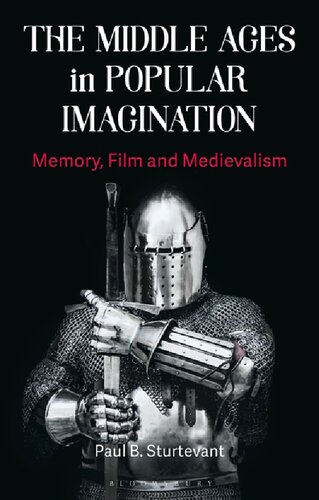

Most ebook files are in PDF format, so you can easily read them using various software such as Foxit Reader or directly on the Google Chrome browser.
Some ebook files are released by publishers in other formats such as .awz, .mobi, .epub, .fb2, etc. You may need to install specific software to read these formats on mobile/PC, such as Calibre.
Please read the tutorial at this link: https://ebookbell.com/faq
We offer FREE conversion to the popular formats you request; however, this may take some time. Therefore, right after payment, please email us, and we will try to provide the service as quickly as possible.
For some exceptional file formats or broken links (if any), please refrain from opening any disputes. Instead, email us first, and we will try to assist within a maximum of 6 hours.
EbookBell Team

4.4
62 reviewsIt is often assumed that those outside of academia know very little about the Middle Ages. But the truth is not so simple. Non-specialists in fact learn a great deal from the myriad medievalisms - post-medieval imaginings of the medieval world - that pervade our everyday culture. These, like Lord of the Rings or Game of Thrones, offer compelling, if not necessarily accurate, visions of the medieval world. And more, they have an impact on the popular imagination, particularly since there are new medievalisms constantly being developed, synthesised and remade.
But what does the public really know? How do the conflicting medievalisms they consume contribute to their knowledge? And why is this important?
In this book, the first evidence-based exploration of the wider public's understanding of the Middle Ages, Paul B. Sturtevant adapts sociological methods to answer these important questions. Based on extensive focus groups, the book details the ways - both formal and informal - that people learn about the medieval past and the many other ways that this informs, and even distorts, our present. In the process, Sturtevant also sheds light, in more general terms, onto the ways non-specialists learn about the past, and why understanding this is so important. The Middle Ages in Popular Imagination will be of interest to anyone working on medieval studies, medievalism, memory studies, medieval film studies, informal learning or public history.